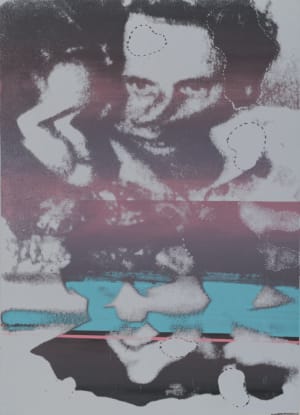Wolf Vostell: Dé-coll/age Is Your Life
Saturday, Jan 20, 2024 10:00a -
Sunday, May 05, 2024 5:00p
Where:
Harvard Art Museums
32 Quincy Street
Cambridge, MA 02138
Admission:
FREE
Categories:
Accessible Spots, Art, History, University
Event website:
https://bit.ly/3RbwdnI
See how Wolf Vostell created art, as well as an expansive aesthetic philosophy, that challenged human complacency toward war, genocide, and other catastrophic world events.
“Art shall remind us that we must remember.” —Wolf Vostell
A witness to the brutality of World War II and its aftermath in Germany, Wolf Vostell (1932–1998) committed his artistic practice to remembering the atrocities of war, violence, and genocide. His art originated from his aesthetic philosophy of dé-coll/age, the use of destruction in art to generate consciousness of destruction in life. Nuclear warfare, Cold War aggression, technological disaster, environmental devastation, and above all, the genocidal acts of the Nazi regime shaped his understanding of aesthetics. One of the first German artists to address the Holocaust after World War II, Vostell felt an urgency to prevent future catastrophe. In a variety of mediums, he jolted spectators from complacency, dismantling mechanisms of mass media and consumerism that numbed individuals to violence and human suffering.
Décollage — meaning “to unglue” or “to take off” — describes the artistic process of ripping layered street posters to reveal poster fragments underneath. Vostell associated torn street posters with postwar landscapes and destructive events and technologies of the 20th century. Stylizing the term as dé-coll/age to emphasize destruction as a creative process, he appropriated it as a comprehensive concept for his art.
Vostell initially lacerated posters to excavate references to the Nazi regime and postwar German society. Adapting techniques of dé-coll/age to other media, he manipulated magazines, newspapers, and television images to decry international geopolitical conflict and technological warfare. Central to his practice were dé-coll/age happenings, participatory group events that staged symbolic confrontations with destruction to incite spectators to become critical actors in their own lives.
-

Sponsored¡Conversaciones Crepusculares!: free in-person Spanish convo practice
Friday, May 02, 2025 4:00p
Boston Area Spanish Exchange (BASE)
-

Sponsored -

Sponsored


